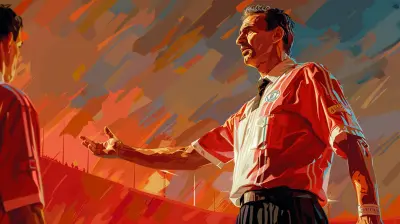The Rise of E-Sports: A New Frontier in Competitive Gaming
12 September 2025
Once upon a time, competitive gaming was just a bunch of friends huddled around a TV, munching on snacks, and furiously button-mashing controllers. Fast forward to now? We’ve got massive stadiums filled with screaming fans, million-dollar prize pools, and pro gamers signing autographs like rockstars. Welcome to the mind-blowing world of E-sports—a digital revolution reshaping the very idea of sports and competition.
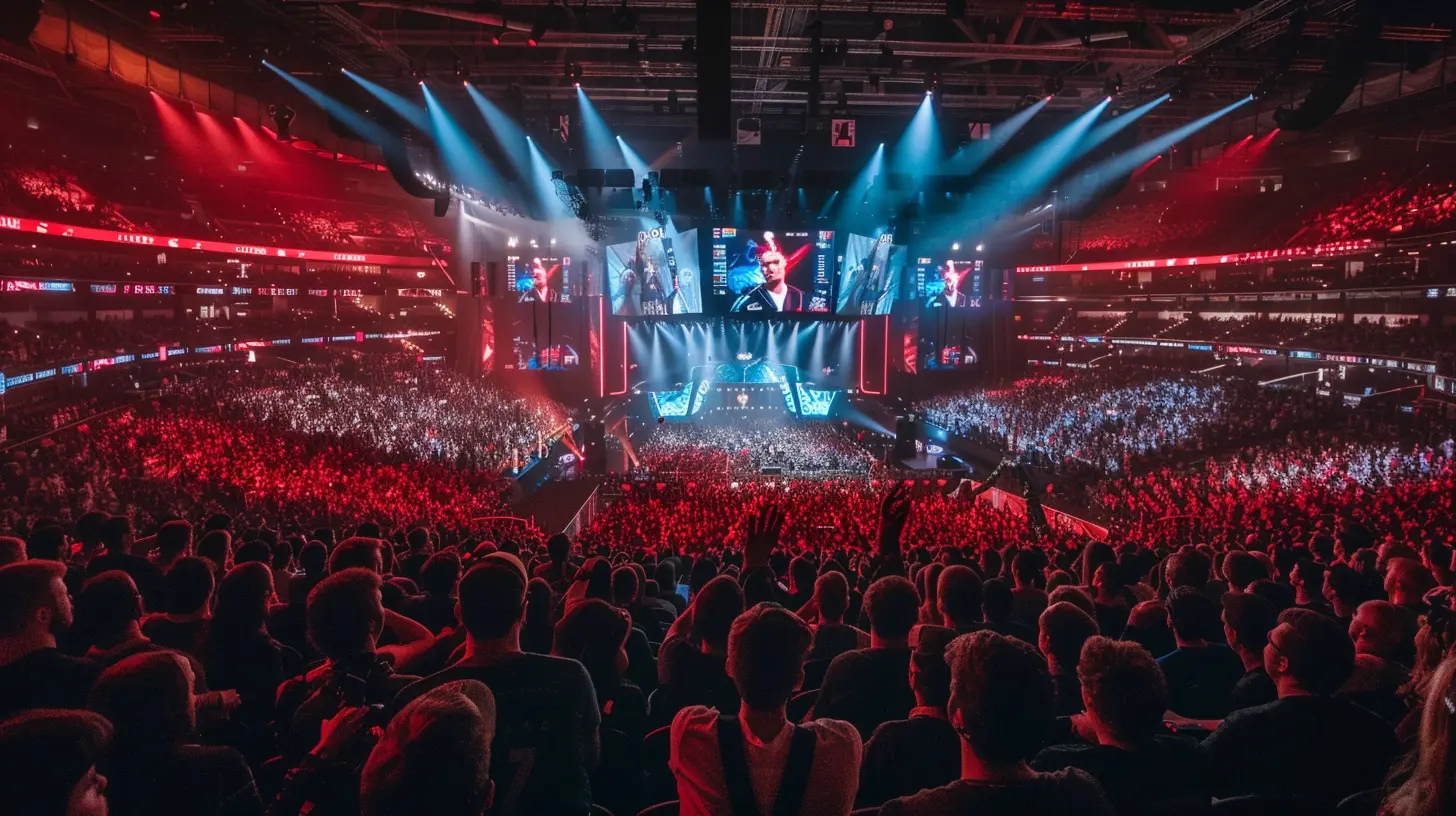
What Exactly Are E-sports?
Let’s break it down. E-sports, short for “electronic sports,” is competitive video gaming at a professional level. And no, we’re not just talking about casual 1v1 matches with your cousin. We’re talking about global tournaments, highly-skilled teams, huge sponsorships, dedicated coaching staff, and fanbases that rival some traditional sports leagues.From games like League of Legends (LoL), Counter-Strike: Global Offensive (CS:GO), and Dota 2 to newer titles like Valorant and Fortnite—E-sports covers a wide range of genres. Whether it’s first-person shooters, real-time strategy games, or battle royales, there's a digital battlefield for everyone.
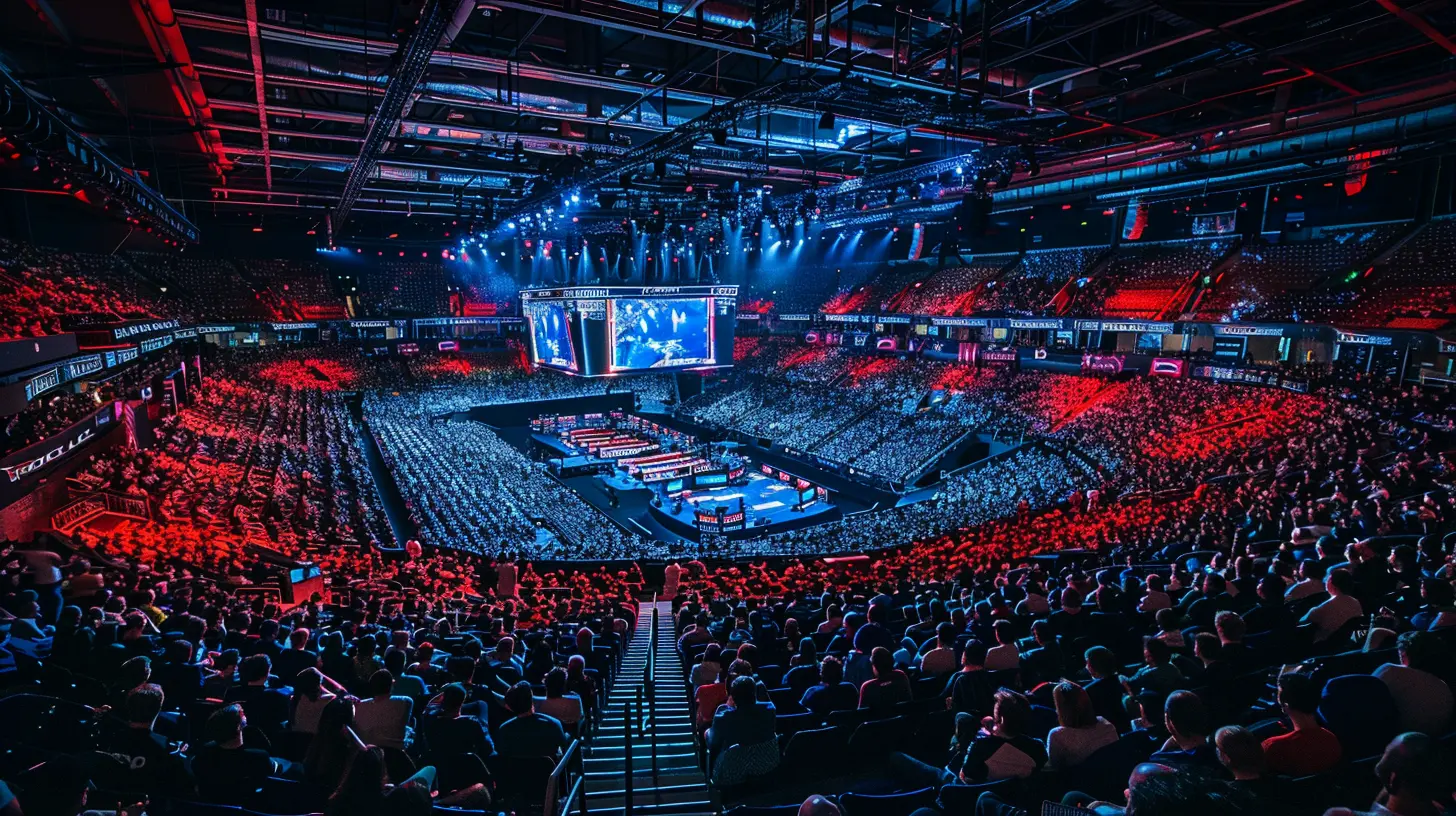
The Incredible Growth of E-Sports
You might be wondering—how did gaming go from a basement hobby to this global phenomenon?A Perfect Cocktail of Factors
The rise of E-sports didn’t happen overnight. It’s the result of technology, community, and culture cooking up the perfect storm.- Internet accessibility: Faster internet made online multiplayer feasible and fun.
- Live streaming: Platforms like Twitch and YouTube Gaming let players showcase their skills to the world.
- Game developers: Companies like Riot Games and Valve built competitive games with E-sports in mind.
- Passionate communities: Forums, Discord servers, and Reddit threads helped foster tight-knit fanbases.
- Millennials and Gen Z culture: These generations grew up with controllers in hand and were more than ready to support competitive gaming.
By The Numbers—A Billion Dollar Industry
The E-sports industry isn’t just growing—it’s exploding.- In 2023, the global E-sports market was valued at over $1.44 billion.
- By 2025, it’s expected to cross the $2 billion mark.
- Audience size? We’re talking over 500 million people worldwide, and it’s climbing each year.
And you thought only the Super Bowl pulled in those kinds of numbers!
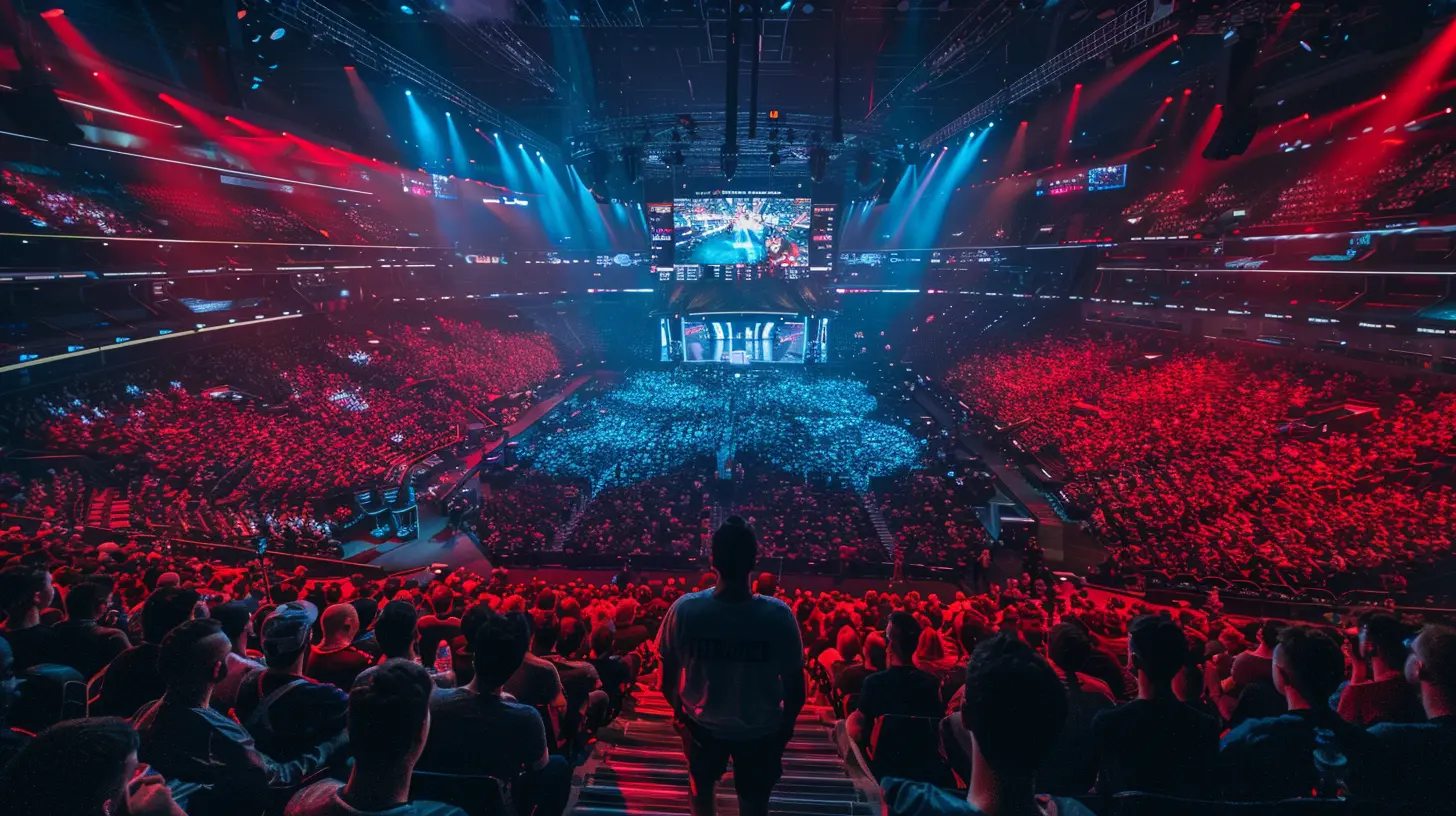
The Glamorous Life of Pro Gamers
Think being a pro gamer is just sitting in a chair and staring at a screen? Think again.Daily Training and Practice
Pro players train like athletes. We're talking 8-12 hours of gameplay daily, followed by strategy sessions, physical fitness routines, and sometimes even sports psychologists to keep their mental game sharp.Big Bucks and Brand Deals
Top-tier players can rake in six to seven figures annually, thanks to team salaries, tournament winnings, and sponsorship deals. Players like Faker, Ninja, and s1mple have become household names in gaming communities—and they’re making bank doing what they love.Global Fame and Fan Culture
These gamers aren’t just champions—they’re celebrities. They have loyal fanbases, get mobbed at events, have their own merch lines, and hit millions of followers on social media. Some even get featured on ESPN. Yup, that ESPN.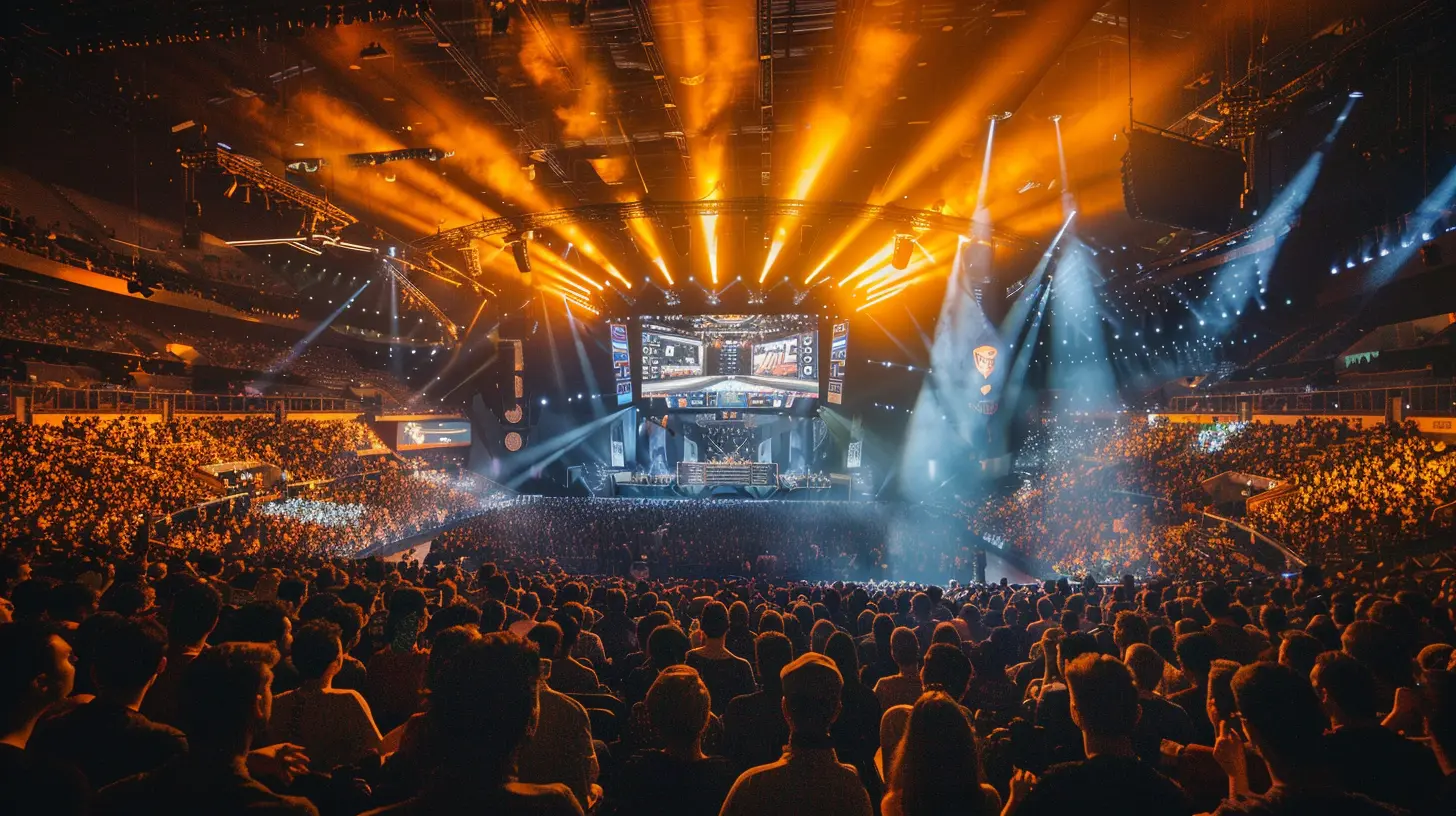
Popular E-Sports Games (And Why They Rock)
Here's a quick tour through some headlining games in the E-sports world.League of Legends (LoL)
- Genre: MOBA (Multiplayer Online Battle Arena)- Why it’s hot: Strategic depth, massive global events like Worlds, and a ridiculously passionate community.
Counter-Strike: Global Offensive (CS:GO)
- Genre: FPS (First Person Shooter)- Why it’s hot: Pure skill-based gameplay and legendary rivalries.
Dota 2
- Genre: MOBA- Why it’s hot: The International (TI) tournament—one of the highest-paying E-sports events ever.
Fortnite
- Genre: Battle Royale- Why it’s hot: Flashy plays, pop culture crossovers, and younger audience pull.
Valorant
- Genre: FPS- Why it’s hot: Combines tactical shooter mechanics with hero-based gameplay—think CS:GO meets Overwatch.
These games are like the Premier League, NBA, or NFL of E-sports. If you’re not watching, you’re missing out.
The Role of Streaming and Content Creation
Let’s be honest—streaming turbo-charged E-sports.Twitch Changed the Game
Twitch isn’t just a website. It’s the living room of gaming culture. Pro players, casual streamers, and fans all hang out, chat, and share gameplay live. Think of it like ESPN, but more interactive and way more fun.YouTube and TikTok Highlights
Missed a tournament? No problem. YouTube recaps, TikTok montages, and Instagram reels bring the excitement right to your feed.Personal Branding = Big Business
Most E-sports pros also double as content creators. They build personal brands, engage with fans, and diversify their income by streaming, collaborating with sponsors, and starting their own merch lines.Basically, being good at the game is just step one. Being a personality? That’s what keeps the hype alive.
The Business Behind E-Sports
Sure, it’s fun and games—but it’s also a serious business.Team Organizations
E-sports teams like T1, FaZe Clan, Team Liquid, and Cloud9 operate like mini sports franchises. They have investors, sponsors, PR staff, analysts, and even their own training facilities.Sponsorships Galore
Major companies—from Red Bull to Nike to Mercedes-Benz—are pouring cash into E-sports. Why? Because it gives them direct access to a tech-savvy, young, and loyal audience.Advertisers Love Gamers
E-sports events feature brand logos, ad banners, product placements, and sponsored content. It's not just about selling G-Fuel anymore—big names want in.Colleges and Career Opportunities
Believe it or not, playing video games can actually get you into college now.Scholarships for Gamers
Universities are offering E-sports scholarships. Schools like the University of California Irvine and Boise State have their own competitive teams and arenas. Yes, arenas.Career Paths Beyond Playing
The E-sports ecosystem needs more than just players. Think:- Coaches
- Analysts
- Commentators (casters)
- Event organizers
- Social media managers
- Game developers
It's an entire industry with tons of potential career pathways.
Challenges Facing E-Sports
It’s not all flashy lights and big checks. E-sports has hurdles to climb.Mental and Physical Burnout
Just like in traditional sports, the pressure can be intense. Players often face burnout, stress-related issues, and lack of work-life balance. Careers are typically short; most pros retire in their early 20s.Cheating and Scandals
Cheating (yes, even in E-sports) and match-fixing have tainted some competitions. Just like steroids in sports, unethical behavior can seriously damage credibility.Inclusivity and Representation
The industry still struggles with gender diversity and representation. More inclusive environments are needed to support female gamers and marginalized communities.Regulation and Structure
Unlike traditional sports governed by longtime institutions (like FIFA or the NBA), E-sports lacks a universal governing body. Rules differ from game to game, and league stability is still a work in progress.The Future of E-Sports
Let’s be real—E-sports isn’t a fad. It’s the future.Merging With Traditional Sports
We’re already seeing NBA teams investing in E-sports franchises. Cities are building E-sports arenas. Traditional athletes like Shaq and Beckham have stakes in gaming orgs. The lines are blurring.The Rise of Mobile E-Sports
In regions like Southeast Asia and India, mobile gaming is king. Games like PUBG Mobile and Free Fire are leading a new wave of mobile E-sports domination. It’s cheaper, more accessible, and growing crazy fast.Virtual Reality and Metaverse Gaming
Imagine stepping into an arena as your avatar, battling on a futuristic field while your friends watch from the crowd—in virtual reality. That’s not sci-fi, that’s where we’re headed.Increased Legitimacy and Recognition
Governments are slowly acknowledging E-sports as real sports. Some countries are handing out athlete visas and officially recognizing E-sports teams and leagues.
Final Thoughts: Why It All Matters
E-sports isn’t just about playing games—it’s about redefining competition, community, and culture in the digital age. It's proof that passion combined with pixels can create something powerful.Whether you’re an aspiring player, a die-hard fan, or just a curious bystander, one thing is clear: E-sports is here to stay. And it's only going to get bigger, louder, and more exciting.
So grab your headset, charge your setup, and maybe—just maybe—you’ll be the next gaming legend.
all images in this post were generated using AI tools
Category:
Sports InnovationsAuthor:

Umberto Flores
Discussion
rate this article
1 comments
Preston McQuillen
Great article! It's fascinating to see how e-sports have evolved into a major part of the competitive gaming landscape. The skill and dedication of players are truly impressive. Excited to see how this new frontier will continue to grow and influence traditional sports!
October 13, 2025 at 12:35 PM

Umberto Flores
Thank you! I'm glad you found the article insightful. It’s exciting to witness the growth of e-sports and its impact on traditional sports as well!


